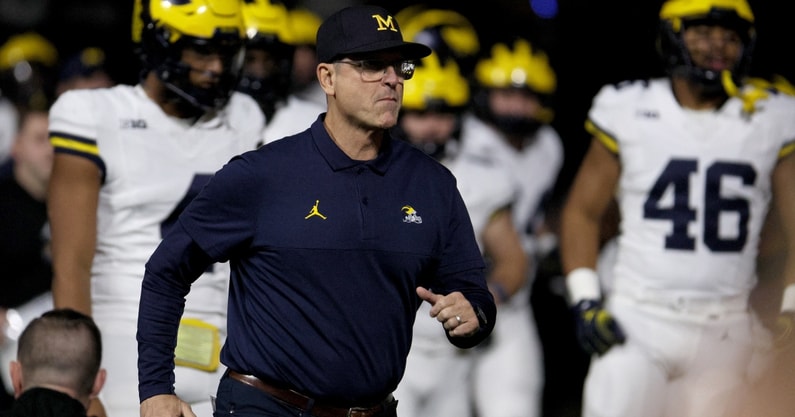
Jim Harbaugh, head football coach at the University of Michigan, and Warde Manuel, the university’s athletic director, have been named in a recent lawsuit related to a hacking incident involving former Michigan assistant coach Matt Weiss. The lawsuit, which has drawn significant attention in collegiate athletics circles, alleges unauthorized access to sensitive information and raises questions about internal operations within the Wolverines’ football program.
The suit was filed following an investigation into cyber activities linked to Matt Weiss, who served as a Michigan assistant before departing the program earlier this year under undisclosed circumstances. Weiss is accused of orchestrating a series of hacking attempts aimed at extracting confidential information from the university’s athletic department and football staff. The plaintiffs claim that both Harbaugh and Manuel had knowledge of, or were complicit in, certain aspects of these activities, leading to their inclusion in the legal action.
According to court documents, the lawsuit alleges that Weiss employed unauthorized methods to access emails, internal communications, and other digital materials related to coaching strategies, recruiting plans, and personnel matters. The plaintiffs argue that the breaches compromised competitive integrity and violated privacy protections. Though the details remain sealed in parts of the case, sources close to the situation suggest that Michigan’s leadership faced significant challenges addressing the breach once it was uncovered.
Jim Harbaugh, now in his tenth season as Michigan’s head coach, has built a reputation for intense competitiveness and a hands-on approach to team management. Warde Manuel, appointed as athletic director in 2016, has overseen major expansions and successes across the department. Their involvement in the lawsuit adds a complicated chapter to the program’s recent history, especially as Michigan continues to compete at the highest levels in college football.
The university has released a brief statement acknowledging the lawsuit and expressing commitment to a thorough legal process. “We take these allegations seriously and are cooperating fully with authorities to resolve the matter,” the statement reads. Both Harbaugh and Manuel have declined to comment publicly, citing ongoing litigation.
Legal experts note that the case could have broad implications for cybersecurity policies within collegiate sports programs. As recruiting becomes increasingly competitive and the use of digital communications grows, maintaining secure information channels has become a critical concern for universities nationwide.
Matt Weiss, whose current whereabouts remain unclear, is expected to respond to the allegations in upcoming court proceedings. The lawsuit seeks damages and injunctive relief aimed at preventing further unauthorized access and protecting the integrity of Michigan’s athletic operations.
As the case unfolds, it will likely draw heightened scrutiny from NCAA officials, university stakeholders, and fans alike. The involvement of prominent figures such as Harbaugh and Manuel underscores the complexity and high stakes surrounding the incident.
For now, the University of Michigan remains focused on moving forward competitively while addressing the legal and reputational challenges posed by the lawsuit. How the situation resolves could set important precedents for handling cybersecurity breaches and personnel disputes in the world of college athletics.






